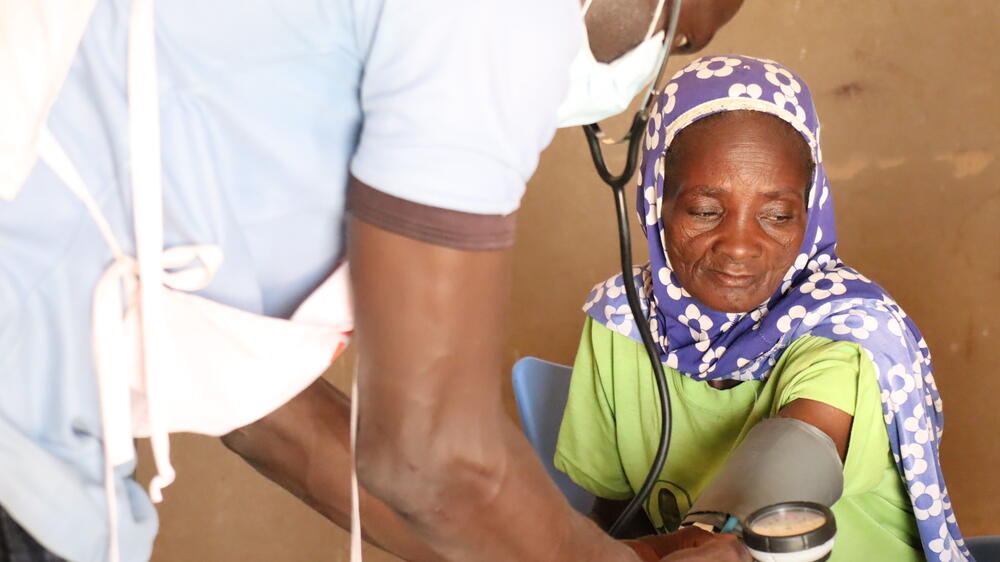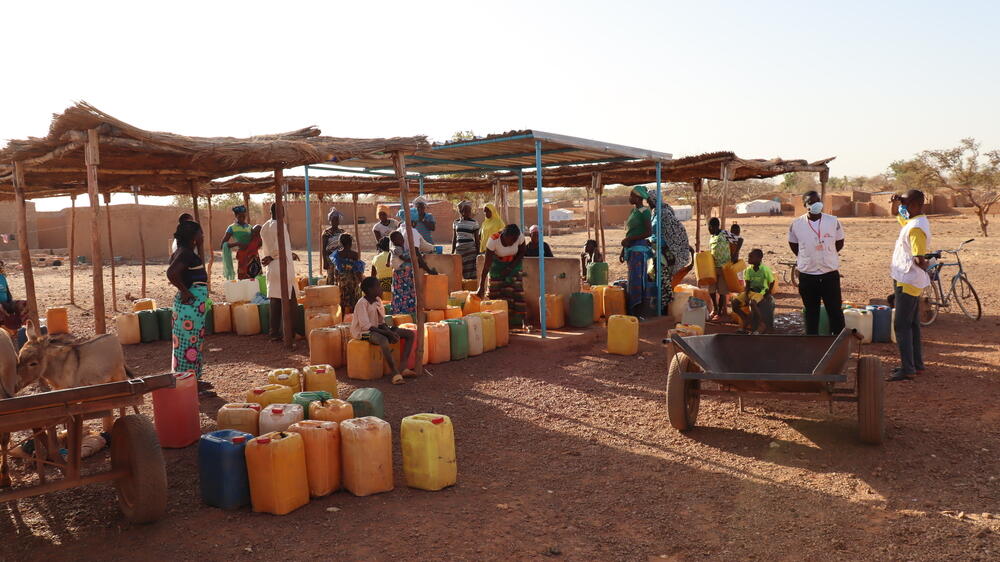Burkina Faso: Mobile clinics reaching communities ravaged by violence
More than 100,000 people have been displaced by recurring violence in Burkina Faso’s North region.
Since January 2021, MSF’s mobile teams have been delivering healthcare to people in the villages of Sirfou, Todiame, Rounga and Ouindigui, where thousands of those who fled the violence have settled.
However, access to healthcare and basic services here is severely limited.
Mobile clinics
“We have nothing left since we fled the conflict. We don’t even have money to pay for medical treatment,” says Zallé Ramata, a woman now living in the village of Sirfou.
Zallè has brought two of her children to receive free treatment from Médecins Sans Frontières / Doctors Without Borders (MSF) during one of the regular mobile clinics.
“They weren’t feeling well,” she says. “They spent last night vomiting until the morning.”
These mobile clinics have been deployed to complement MSF’s medical services in the town of Titao. They deliver free healthcare directly to people fleeing a cycle of violence that for years has pitted armed groups against the military and has also involved intercommunal clashes.
Out of 23 health centres in the district of Titao, 15 are no longer operating at full capacity and another three are shut down due to the conflict. Added to the insecurity, long distances and lack of transport, this has made access to basic healthcare in Titao’s district almost impossible.
The need for mobile clinics is therefore critical.
Cut off from care
Every week, an MSF team of five travels several dozen kilometres to reach these villages, often on very poor roads. The journey is relatively easier in the dry season but becomes longer and more difficult when the rains start falling.
The region’s chronic insecurity adds to the challenges. It took months for the conditions to allow MSF teams to leave the town of Titao and reach these villages in the outskirts.
“These villages are located several kilometres from the nearest health centre,” says Monique Diarra, an MSF nurse.
“In Sirfou for example, where we are today, the nearest health centre is seven kilometres away. The majority of the displaced people have neither the means of transportation nor the money to get there.
“We provide primary healthcare services that include treatment for common diseases such as malaria, diarrhoea and respiratory infections. Recently, we started providing treatment for chronic diseases and mental health support.”
Between January and March 2021, MSF provided more than 1,600 medical consultations to host communities and displaced people in an area where around 15,000 people live.

Help us prepare for the next emergency
Malaria season
By the end of 2020, many displaced people who had settled in Titao had decided to return to their homes, although local health centres are still closed.
However, with the rains and the peak of malaria season approaching, MSF teams are concerned about the increased need for medical treatment in an area with few services available.
So, as a more long-term solution MSF teams are supporting five health facilities in the district of Titao to help them regain their full working capacity.
“Our work from Titao is a short-term solution we launched to respond to the needs of people who were recently displaced,” says Dr Diallo Alpha Amadou, MSF’s medical coordinator in Burkina Faso.
“When these health centres are ready to admit patients again, we will move our mobile clinics towards other villages.”
Water and sanitation
MSF medical teams also support local health authorities with mass vaccination campaigns against common diseases among the displaced community.
At the same time, MSF logistics teams rehabilitate old boreholes or build new ones to increase access to clean water. With the waves of displacements and poor living conditions for those who have fled, the current lack of clean water means disease can easily spread.
“We receive many patients suffering from diseases they caught by drinking polluted or dirty water,” says Dr Alpha.
“In many areas in the North region, just like in other areas of the country where displaced people have settled, access to clean water remains a challenge for thousands. The lack of water access points and their poor quality are reasons behind different parasitic infections and other water-borne diseases such as cholera and diarrhoea.”
MSF in Burkina Faso
Burkina Faso experienced an upsurge in violence in 2019, leading to mass displacement and severely restricting access to health services in the affected regions.
In early January 2019, violent clashes in Yirgou in the north of the country forced thousands of people to flee. The violence, involving both communal and religious armed groups, quickly escalated. Médecins Sans Frontières / Doctors Without Borders (MSF) teams, who were already in the Sahel region to support emergency rooms and operating theatres, rapidly responded in Barsalogho and Foubé in central Burkina Faso, providing basic healthcare for host communities and displaced people.

